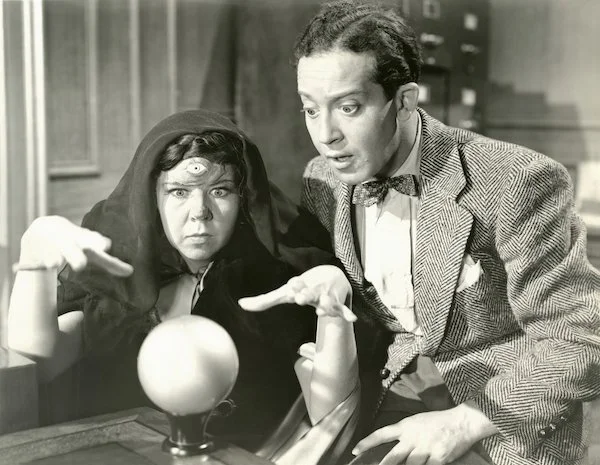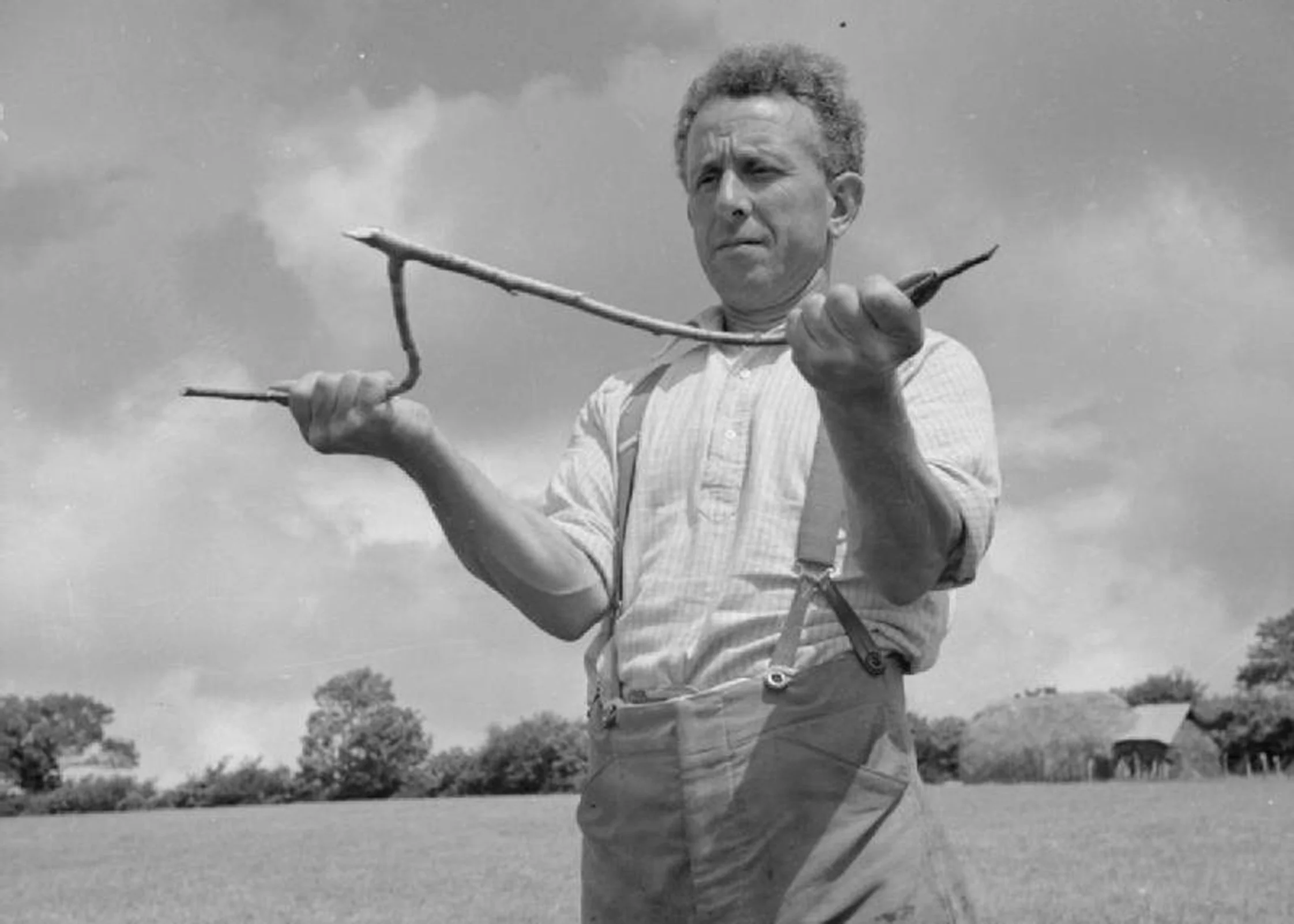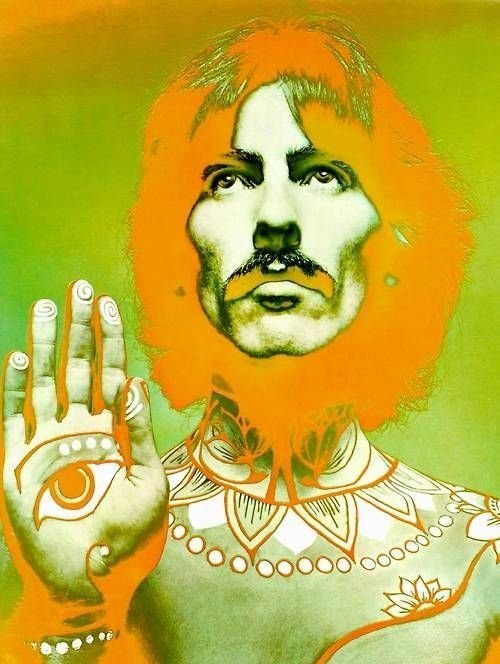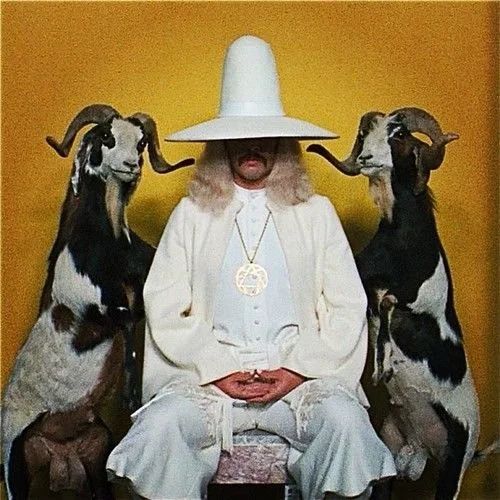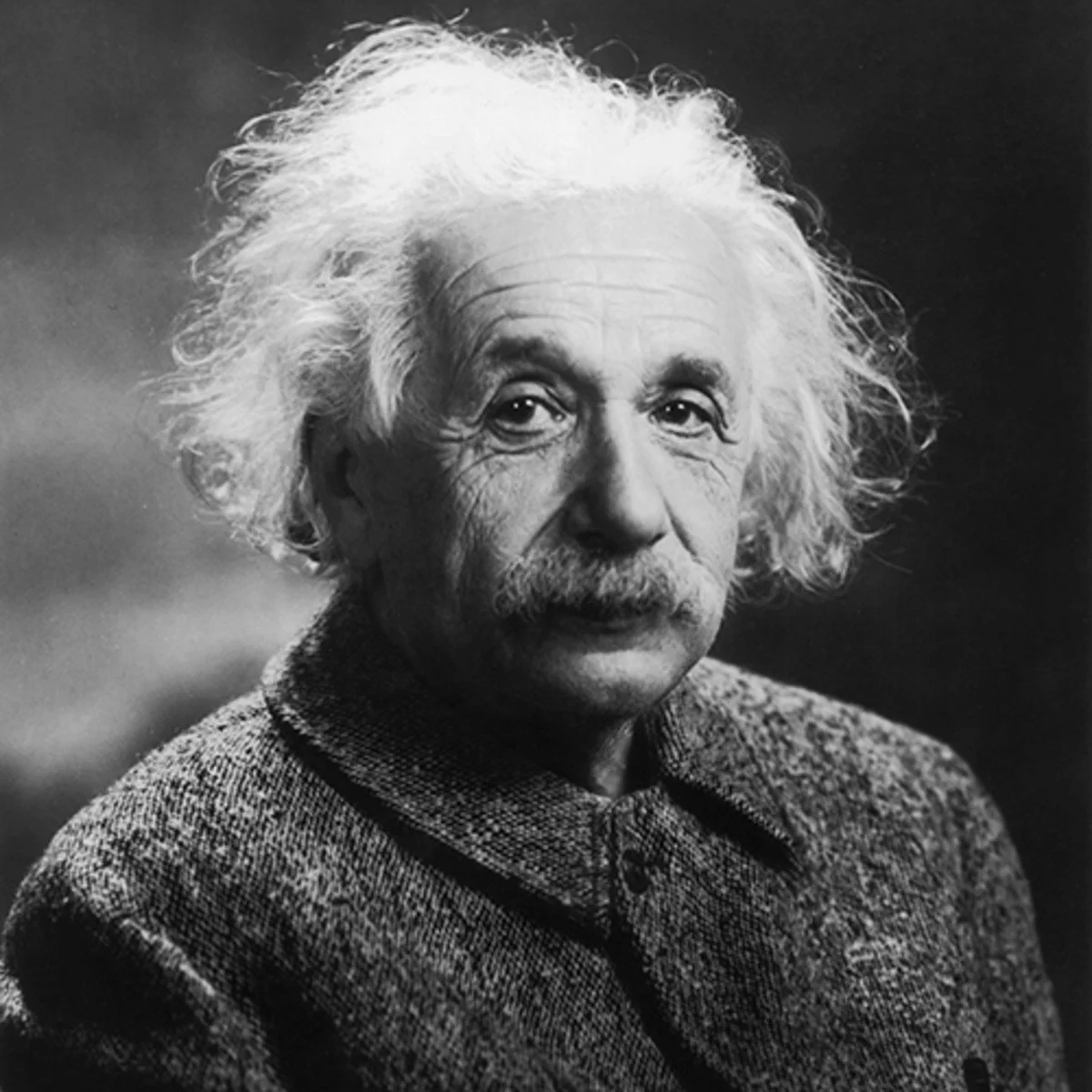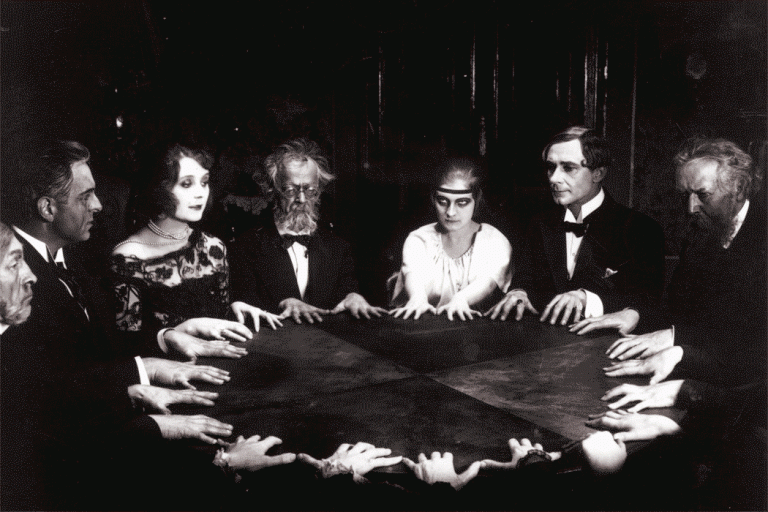By The Landlord
“Intuition is the nose of the heart.” – Amit Kalantri, Wealth of Words
"The only real valuable thing is intuition. The intuitive mind is a sacred gift and the rational mind a faithful servant. We have created a society that honours the servant and has forgotten the gift." – Albert Einstein
“Intuition is reason in a hurry.” – Holbrook Jackson
“Everything I have to say has already crossed your mind."
"Then possibly my answer has crossed yours.” – Arthur Conan Doyle, The Memoirs of Sherlock Holmes
“Watching television is like taking black spray paint to your third eye.” – Bill Hicks
Where does the time go? Next week it will be The Song Bar’s sixth birthday. How do we make sense of that? Instead of something obvious like songs about the number six, the inspiration takes an alternative turn, a more intuitive path, a gut instinct, a feeling in your bones, looking towards notions of unknown source, sensing something without knowing why. Where will that take us?
This is a topic that could lead to lyrically expressed thoughts, feelings, and stories down many paths, the most obvious with songs that mention directly the phrase sixth sense, and other synonyms mentioned above, but hopefully will bring material of nuance, subtlety and the yet to be discovered. We’re all aware of the conventional five senses of sight, hearing, taste, smell and touch, but is there a sixth we also experience? A combination of the others, or even something else entirely, perhaps something that’s lost in modern life, but used regularly in our hunter-gathering past? Is this something that animals have retained?
There are known experiences of course, such as a mother or close relative suddenly experiencing a strong sense of a loved one’s distant tragedy, or an imminent long-lost return. Or it might just be, as expressed in lyrics, about having a bad, or good feeling, about another person or a situation, or the mechanism that gives a sense of deja vu.
Do we still have physical sixth sense sensations that have simply been drowned out by the noise and lights of modern life? One example might be, as water-based carbon mammals, the ability to unconsciously sense changes in air pressure or electro-magnetic forces that affect us all, or even more complex?
One example that twitches in some minds, like the forked twig in which it is used, is dowsing, a type of pseudoscientific stick-holding divination process employed in attempts to locate ground water, buried metals, or oil. It makes sense that we might be able to subconsciously detect water at least, as it is something the body needs, but is it a real thing? As a child, I remember this being a bit of fad, probably from watching this on TV, and making divining rods out of metal coat-hangers. But did our fingers twitch from water or metal only because we felt the need to, just as ouija boards might prompt involuntary movement?
Diviner inspiration?
But dogs, cats, birds and most animals seem to tangibly display some kind of sixth sense nature regularly, suddenly reacting to whatever is beyond our perception, that could be related to human activity or other phenomena.
Is this simply the sheer sensitivity of their olfactory systems and more, their finely attuned need to belong and be fed? But what about where, for example, dogs have been known to detect cancer or covid before symptoms appear, or some form of sixth sense?
Do animals have a sixth sense, or is it all olfactory?
But did “Paul the Octopus”, who became famous during the 2010 World Cup for his apparent ability to predict the results of football matches, have any sixth sense? Not for gambling, of course, as this was all a PR stunt, but surely, these highly intelligent creatures have far more perceptive powers than we give them credit for. Paul was probably just winding up his owners to get more food. Whales, dolphins and other sea creatures of course have sonic senses well beyond our own.
It works both ways of course when we study animals and they study us. In her life-long work on primates, Jane Goodall expresses how the scientific process is not simply based on collecting data. “When I began in 1960, individuality wasn't an accepted thing to look for; it was about species-specific behaviour. But animal behaviour is not hard science. There's room for intuition.”
Beyond the five senses of humans, there are many references to intangible instinctive and intuitive processes across culture and history. The third eye, sometimes known as the mind’s eye or inner eye, is more of an esoteric, speculative or mystical concept, expressed in the form of an extra eye on the forehead. In Indian spiritual traditions, this is also know as ajina chakra, one of many expression of higher consciousness, enlightenment, inspiration, associated with religious visions, clairvoyance, and even out-of-body experiences. “Your brow chakra is an intuitive wonder. It is the seat of your sixth sense,” says the author Amy Leigh Mercree.
George Harrison enjoyed some third-eye activity
Such terminology is also a rich source of song inspiration and would certainly count this week. But how do you find your third eye? Some seek to find this via meditation, others see it as a load of hokum.
We’ll come to the hokum side of things in a bit, but when it comes to creativity, particularly music, there is certainly something going on beyond the five senses. “When we fall asleep, we withdraw our awareness from its hypnotic fascination with physical sensation, thereby enabling us to listen with our now awakening sixth sense,” says the dream theory writer Henry Reed. Are dreams a key to this?
David Bowie regularly wrote down his dreams for lyrical inspiration, and that’s not from having good eyesight. Meanwhile Paul McCartney, for example, doesn’t just roll of of bed in the morning with a fabulous tune in his head because he has good hearing. So what senses are at play?
A small collection of other musicians are also gathered describing what happens with them and the musical process.
“Melody is pure intuition. I don't use any thinking brain when I do that. That's totally in the zone,” says hit-making melody writer and singer Sia.
Hit song writer Sia: “Melody is pure intuition.”
“Yes, I'm just trusting my intuition and my taste and writing it quickly,” adds more recent star Arlo Parks.
A couple of seasoned old fret-players are also around to add their insight, particularly regarding playing by ear. Brian May admits: “I never took sheet music seriously. I could do better myself just by listening to other people and using my own intuition.”
Brian is comes across as a far more logical, technical, analytical type of player, but it’s interesting to hear this other side to his musicianship. Meanwhile, with a rather different style, always bare-chested Flea from Red Hot Chilli Peppers is always keen to express his inner animal. “All my career, all that I've really done has been based on emotion and intuition and gravitating toward what sounds good.”
Film director, artist and musician, eccentric and regular practitioner of meditation David Lynch is one of many creative people in the Bar this week, eager to talk about this subject. Beyond others, he talks about how inspiration comes from diving deep into the subconscious for ideas. And that “intuition is the key to everything, in painting, filmmaking, business – everything. I think you could have an intellectual ability, but if you can sharpen your intuition, which they say is emotion and intellect joining together, then a knowingness occurs.”
And here’s mystical and rather magical director Alejandro Jodorowsky, best known for the extraordinary and otherworldly film The Holy Mountain (1973), which was largely funded by John Lennon: “When I was a young person I went to the university and I learned a rational language, to think with the left side of the brain. But in the right side of the brain you have intuition and imagination. Words are not the truth; they indicate the way to go, but you need to go alone, in silence. Symbols have a language that kills the words.”
Jodorowsky’s The Holy Mountain - beyond the five senses
Albert Einstein enthusiastically agrees on this intuitive front, seeing a combination of forces at work, even irrationally. “I believe in intuitions and inspirations … I sometimes feel that I am right. I do not know that I am.”
Even the most logical thinkers see a leap of imagination as key to discovery. Mathematical genius, code-breaker, and computer inventing revolutionary Alan Turing says: “Mathematical reasoning may be regarded rather schematically as the exercise of a combination of two facilities, which we may call intuition and ingenuity.”
Einstein: like Alan Turing, mathematics with intuition
Whether in science or art, a lot of practice and experience seems to be partly the key to having some sort of intuitive sixth sense. In his 2005 book, Blink: The Power of Thinking Without Thinking, Malcolm Gladwell describes many examples of instinctive behaviour of the adaptive unconscious where instant decisions can be made by a process of ‘thin-slicing’, perceiving vast amounts of data at once. But the process is delicate. As Gladwell says: “Insight is not a lightbulb that goes off inside our heads. It is a flickering candle that can easily be snuffed out.” There are many examples where this process is used for good or bad, from gambling to sales and advertising, relationship predictions, police shootings, or spotting a fake from a real ancient statue.
As wonderfully expressed as it is in Gladwell’s book, the whole idea is nothing new. “Intuition is the clear conception of the whole at once,” adds Johann Kaspar Lavater, the 18th-century Swiss poet, writer, philosopher, physiognomist and theologian.
We all use intuition. When we meet someone, all of us might get a gut feeling about them instantly. It’s something we learn to trust as life goes on, whether that’s in a friendship, work, purchasing or romantic context. That perception could be regarded a sixth sense, whether it proves to be right or wrong. But taking of fake, there’s a whole school of the sixth sense where highly skilled practitioners play on that entire process, knowing what behaviour and signals work.
Clairvoyants, psychics, mediums, fortune tellers - are any of them real? Or are they just highly intuitive to others’ emotions and traits? For the most part, this seem to be magicians and tricksters of the mind, but mention of them in song might certainly count this week, if in the context of expressing some sort of sixth sense.
Handy but dodgy
From Uri Geller and his “spoon-bending” and other mind tricks of psychokinesis and telepathy to other TV personalities, there’s a PR and showbiz skill at play. None of this is new. There have have always been entertainers of this kind. Nightmare Alley, the new film directed by Guillermo del Toro based on the 1946 novel of the same name by William Lindsay Gresham, follows the fortunes of a psychic who starts in a sleazy travelling circus in the early 20th century, fooling audiences by use of a series of coded phrases and hand gestures from an assistant who has prior knowledge of his subjects.
Florida’s M Lamar Keene, a real-life prominent Tampa-based seance medium who in the 1960s and 70s, suddenly decided to become a whistleblower on the tricks of the trade, and confessed all in his 1976 book, The Psychic Mafia. But there is a lot of money at stake in this business, such is the emotional power of apparently being able to speak to dead relatives, billions in fact and an attempt was later made on his life. He didn’t see that coming of course!
Perception beyond the unknown took a new layer of irony in the publication of The Third Eye, also all about reaching into new realms of the senses, a huge-selling book of that title was published in 1956 written apparently by a Tibetan monk named Tuesday Lobsang Rampa, but even that was fake. The author was found to be one Cyril Henry Hoskin (1910–1981), the son of a British plumber, who claimed that his body was occupied by the spirit of said monk!
Adults may often be con artists, but what about children? In childhood a common feeling to have superpowers of the imagination, or senses beyond that of busy adults. I remember this, do you?
Is that something we lose? And how is that expressed in song? Of course the best known popular reference to the title of this topic is The Sixth Sense film of 1999, in which the wide-eyed Haley Joel Osment does a brilliant performance as the boy who can see dead people, leading child psychologist Bruce Willis into a scary world beyond his comprehension with a fabulous plot twist, copied in many other plots.
Let’s hope we’ll not see too many dead people, in our search for songs on this subject, but hopefully dead, as well as many still living songwriters will come through the sixth sense of discovery. Taking good care of all of this, and making sense of it in playlists, is the sensitively wise Suzi! Place your suggestions in comments below for deadline on Monday at 11pm for playlists published next week.
New to comment? It is quick and easy. You just need to login to Disqus once. All is explained in About/FAQs ...
Fancy a turn behind the pumps at The Song Bar? Care to choose a playlist from songs nominated and write something about it? Then feel free to contact The Song Bar here, or try the usual email address. Also please follow us social media: Song Bar Twitter, Song Bar Facebook. Song Bar YouTube, and Song Bar Instagram. Please subscribe, follow and share.
Song Bar is non-profit and is simply about sharing great music. We don’t do clickbait or advertisements. Please make any donation to help keep the Bar running:

